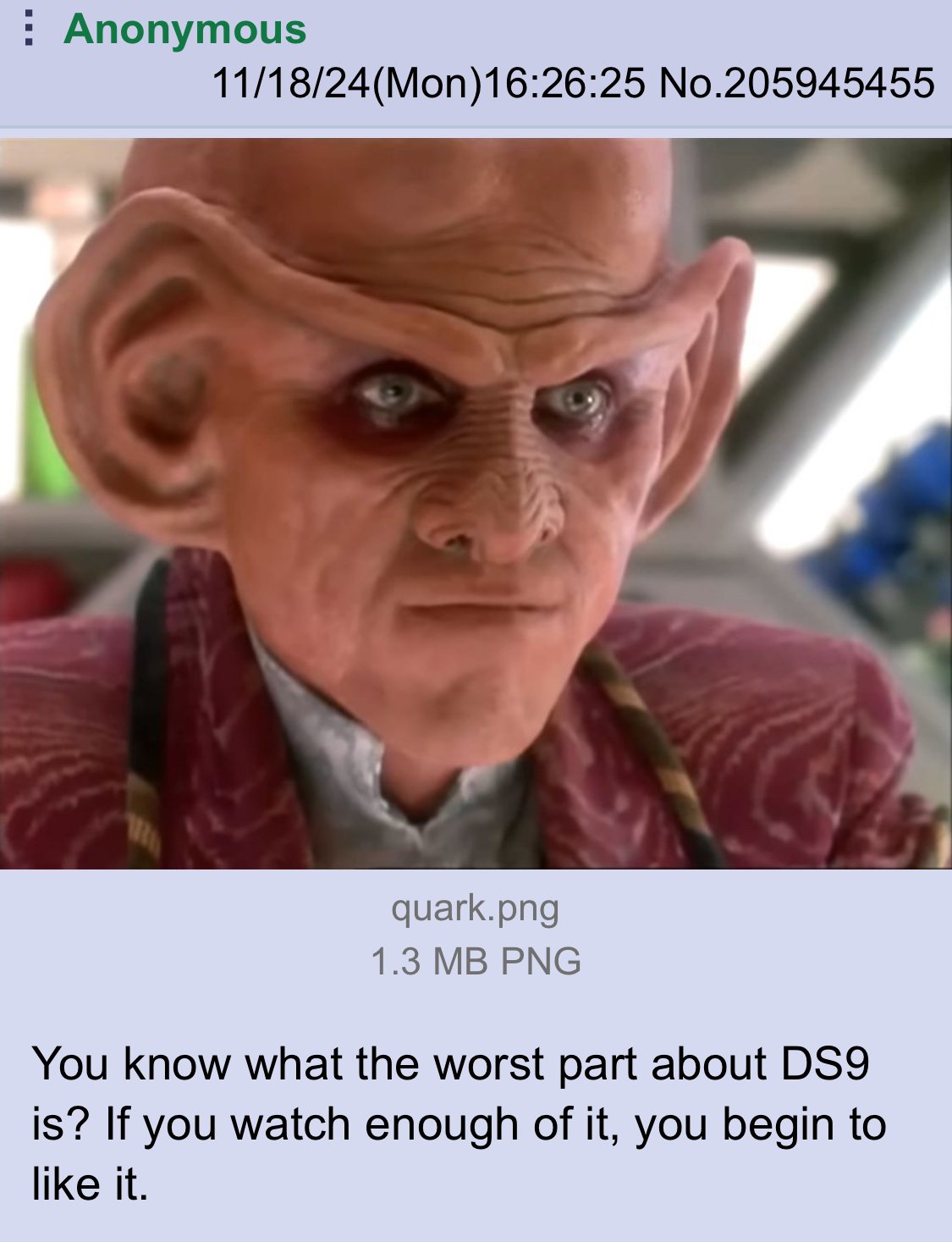this post was submitted on 19 Nov 2024
450 points (99.3% liked)
Greentext
7661 readers
989 users here now
This is a place to share greentexts and witness the confounding life of Anon. If you're new to the Greentext community, think of it as a sort of zoo with Anon as the main attraction.
Be warned:
- Anon is often crazy.
- Anon is often depressed.
- Anon frequently shares thoughts that are immature, offensive, or incomprehensible.
If you find yourself getting angry (or god forbid, agreeing) with something Anon has said, you might be doing it wrong.
founded 2 years ago
MODERATORS
you are viewing a single comment's thread
view the rest of the comments
view the rest of the comments

PNG is lossless and its compression not well suited for photos. It doesn't even have to be huge to get a photo PNG of that size.
It's not TIFF. This isn't NASA imagery. PNGs do alright on compression for photos.
(at least I hope NASA hasn't captured images of Quark)
PNG can zip but it's lossless, joh can lose data, and the difference is very significant
TIFF is also such a hot mess when it comes to picking the correct subformat because there are so many options for compression available, some of them FOSS, some of them proprietary. Edit: … and most of them quite dated.
Can be lossless
How would you make a lossy PNG? Just introduce errors randomly? That makes no sense.
By reading google or the wiki
Process data so DEFLATE works more efficiently
Are we still talking about PNG? Nowhere in the PNG standard is a description of changing the actual content of an image to make it compress better with DEFLATE. If you are thinking about the filter stage you should know that in this context an image filter is just creating a different representation of the same image, because it is fully reversible.
Sounds very pedantic. ive already given the only answer im gonna give, if you want to label it something different that's your business.